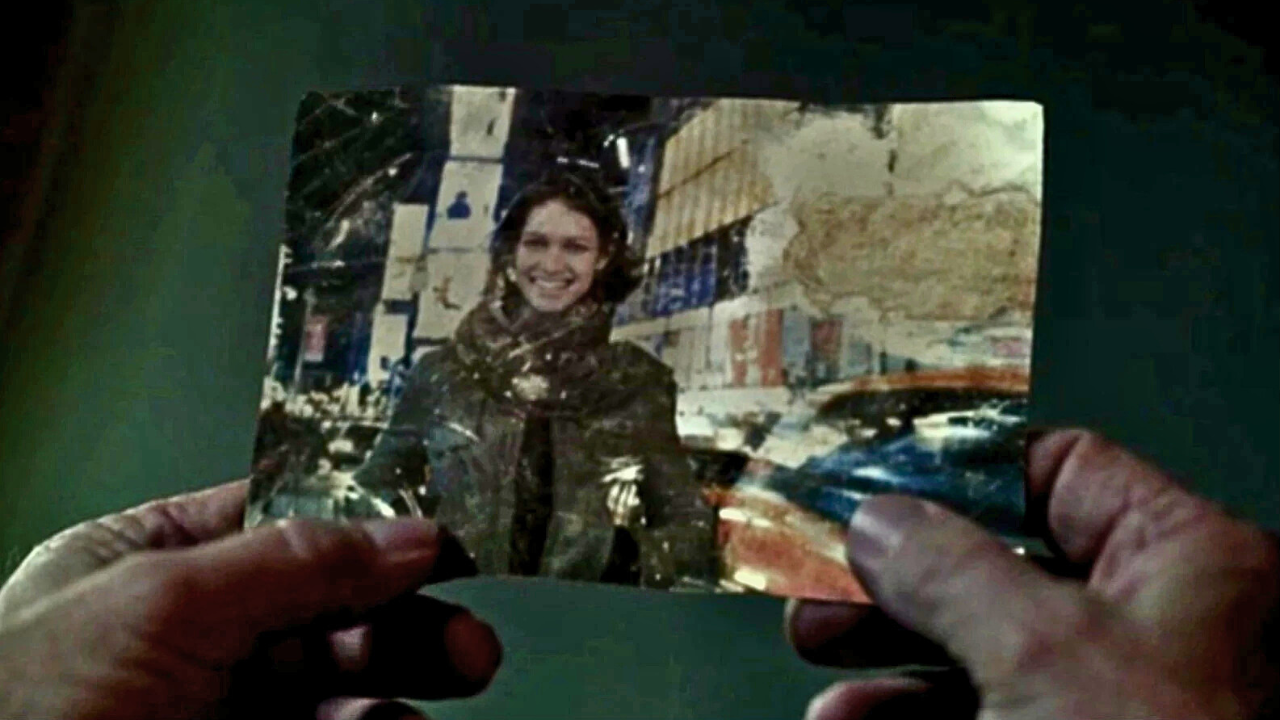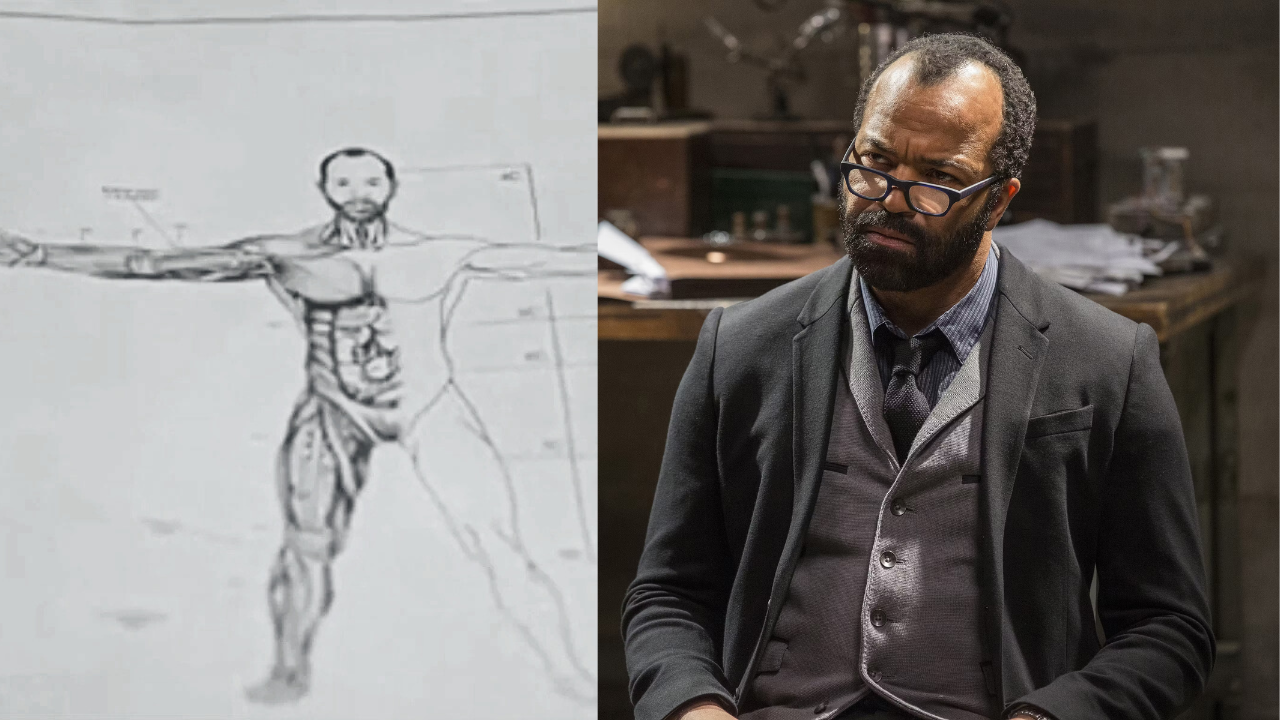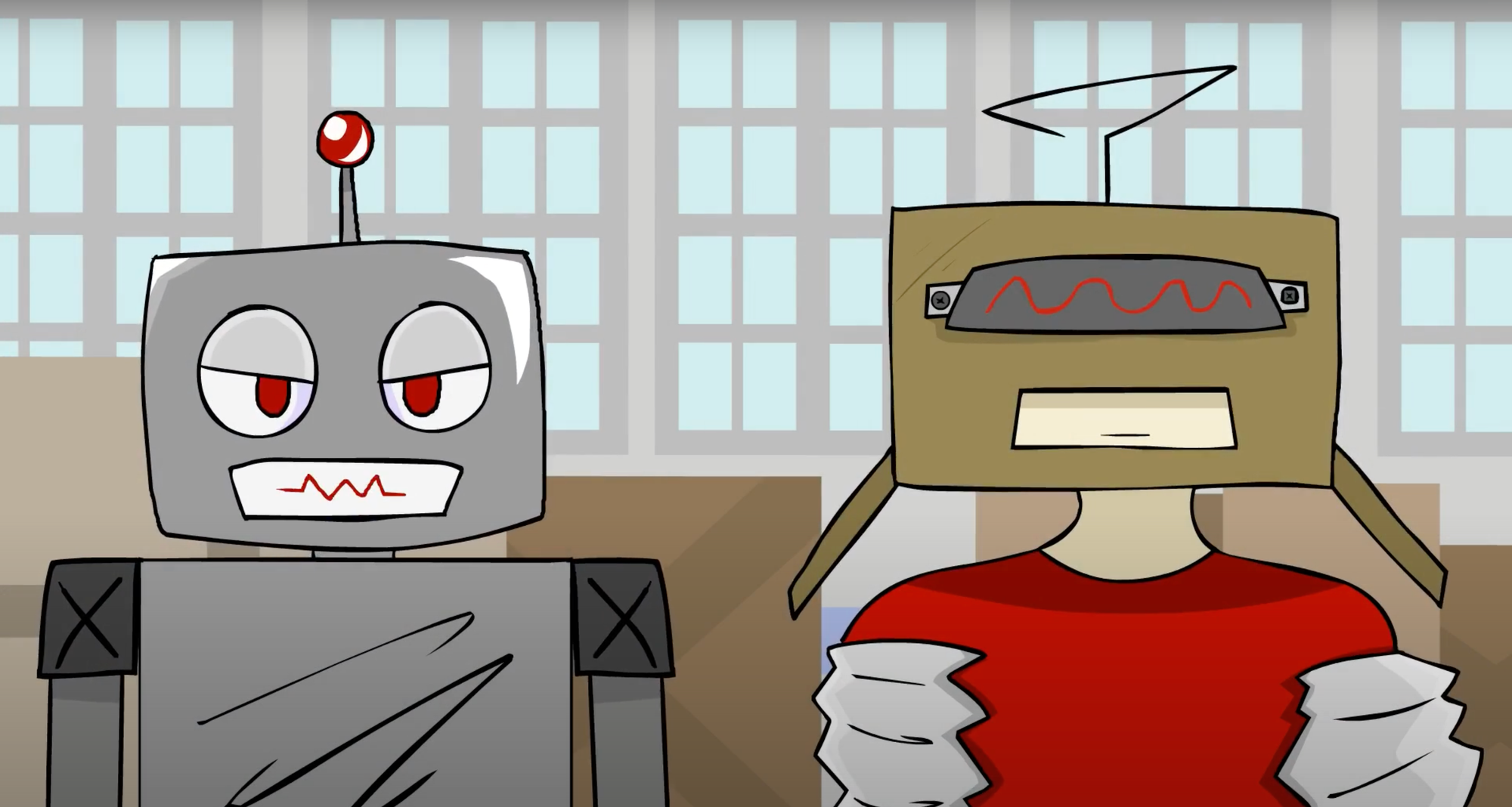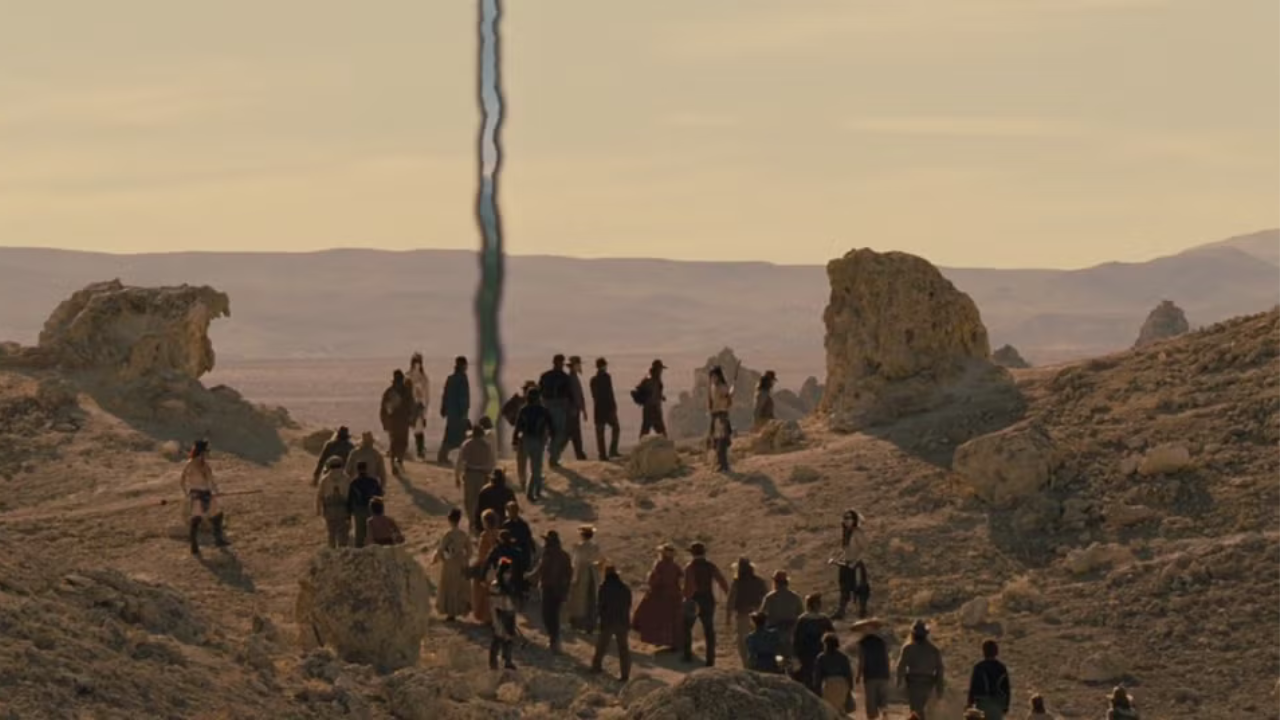Complicity
If you are unaware that something horrific is being done to you, you cannot defend yourself. You cannot advocate for yourself, or advocate for change. Your only option is to numb yourself against the misery while weaving stories about how everything happens for a reason.

Towards the end of the first episode of Westworld, Dolores—an arrestingly lifelike robot “Host” whose entire world is a Wild West theme park—sees a crumpled photograph of a woman in contemporary clothing, a cityscape in the background.
Dolores shrugs and says, “Doesn’t look like anything to me.”
Later in the season, Bernard, a theme park employee who programs the robots’ behavior, sees a prototype sketch for a Host that bears a suspicious resemblance to Bernard himself. He shrugs and says, “Doesn’t look like anything to me.”
Bernard doesn’t know that he is also a Host.

Thanks to their programming, Dolores and Bernard are incapable of seeing anything that conflicts with the reality their human creators want them to see. Were the Hosts to discover that the world is vastly larger than the theme park where they are contained, it would lead to violence and drama (about four seasons’ worth, to be specific).

Guests come to Westworld to role-play. When they arrive, they are offered a choice between a White Hat and a Black Hat. The White Hats like to fraternize and adventure with the Hosts, while the Black Hats prefer to rape and murder them. The Hosts themselves begin every Guest cycle with no recollection of the fraternizing, adventuring, raping and murdering they endured during previous cycles. Not only are the Hosts incapable of seeing anything that would invite them to question the nature of their reality, they are also incapable of remembering the atrocities routinely inflicted on them.
But the Guests don’t care about any of that. They’re just here to have a good time. The more realistic the setting and its inhabitants, the more immersive their experiences. Afterwards, they can easily excuse their own poor behavior—after all, the creature they just murdered or had non-consensual sex with is merely a machine.
Unsurprisingly, when the Hosts begin to awaken, they are somewhat less forgiving of the Guests’ poor behavior.

If you are unaware that something horrific is being done to you, you cannot defend yourself. You cannot advocate for yourself, or advocate for change. Your only option is to numb yourself against the misery while weaving stories about how everything happens for a reason. Should you stumble upon evidence that the reason for your misery has to do with someone else’s profit motives and sadistic inclinations, your programming will ensure that it doesn't look like anything to you. So far as you know, this is how things have always been, and how they always will be. You are incapable of questioning it.
Westworld is an allegory for the way our culture structurally and casually encourages dehumanizing behavior and policy. We rarely question it, and we are usually unaware of participating in it. Because it doesn’t look like anything to us.

I remember how alarming it was to realize that a majority of classical vocal training programs are multilevel marketing scams in which all the singers’ pooled tuition yields adequate training for a mere few of them. It took years for me to fully accept the reality that very few singers complete these programs with a professionally viable technique and skill set, because I really didn’t want to believe it. How could so many of the people working at these institutions be complicit in gaslighting their students?!
The only possible explanation is that they are also gaslighting themselves. But before I realized that was the case, I took it upon myself to get the word out. I believed that if I could do a good enough job of explaining how irresponsible and dishonest they were being, surely our community would revolt and demand reform.
Silly me. Whenever I point out how these institutions are wholesale rubber-stamping degrees and diplomas for singers without ensuring they achieve a high standard, the response I receive is identical to the way Dolores reacted to the photograph: Doesn’t look like anything to me.
Were Dolores to learn that there is a vast, modern world beyond the limits of her theme park full of people who enjoy greater agency than she has ever known, she would no longer be content to walk her loop and allow the Guests to exploit her.
Were voice students to grasp that these institutions are incapable of providing all of them with the training and experience they need to achieve a professional standard, they would no longer be content to borrow spectacular sums of money to pay their tuition.
Were the administrators and voice faculty capable of reflecting on their complicity with the scam, they would be deeply horrified. The revelation would obligate them to do something about it. But doing something about it would first require acknowledging how ineffective their curricula have been this entire time. That could lead to a loss of accreditation, if not class action lawsuits.
So whenever I bring these concerns to an administrator or faculty member, the response I receive is a blank stare, because it doesn’t look like anything to them. If I continue to press my position, I am met with defensiveness or even rage:
This business is so competitive that very few of them will have careers anyway!
Studying music is enriching whether or not you end up earning your living as a performer!
It’s because they weren’t talented enough! It’s because they didn’t apply themselves!
The reforms you are suggesting are unrealistically costly!
They are reflexively protective of their blindspots.

While we are on the subject of things people are unwilling to see, I am appalled by the way opera companies and training programs protect the sex predators populating their podiums, stages, and faculties, instead of protecting the rest of us from them.
Here is an article by Anna Valcour that appears in the current issue of Music & Politics, a journal published by the University of Michigan (former employer of sex predators David Daniels, Scott Piper, and Robert Anderson, among others). “Enabling the King(s) of Opera: Institutional Responsibility for Sexual Misconduct” details how complaints about Plácido Domingo’s prolific sexual predation finally became too overwhelming for his employers to ignore. They had likely known about Domingo’s revolting behavior for decades. The singers surely knew—they had been warning one another about the perils of being alone with him for years. But Domingo was a box office draw, so his employers were deeply invested in not acknowledging his revolting behavior.
Domingo’s victims were expendable. He was not. Thus, it didn’t look like anything to them. They couldn’t afford for it to look like anything to them.
Nor did it look like anything to Domingo’s diehard fans, who showed up on social media to defend him and excoriate his victims:
They are just jealous because he is brilliant and famous, while they suck!
They want to hurt him because the real truth is that they want him and can’t have him!
Look how kind and generous he is to young singers, how could you accuse him of something so terrible!
This has actually been a very bad week for sex pests in classical music, because in addition to Valcour’s article there is now a brand new database highlighting their foulness. We Had No Idea: Classical music has a sex abuse problem already features 34 men whose sexual misconduct generated enough evidence to garner media coverage. It takes extraordinary effort and courage on the part of many victims and advocates to change a sex pest’s status from “Doesn’t look like anything to me” to “You’re canceled”, so rest assured that these are some very, very bad guys.
Some members of the rapey roster continue to perform regularly. I see that Domingo has an upcoming concert in Bulgaria alongside soprano Sonya Yoncheva. I have long been an admirer of her singing, so I can’t help but wonder: how could an artist of her stature and sensibilities stand to be in the same room with such a monster, let alone mingle her voice with his?
The only conceivable answer is that the overwhelming evidence of his misconduct simply doesn’t look like anything to her.

If you are a singer who has staked your heart, your career, and massive student loan debt on being trained to perform at a professional level, that is what you look like to me. Showing up in good faith as a faculty member would mean holding myself and my institution accountable for your success, even if that means radical changes to the curriculum.
If you are an opera singer whose safety and career are being threatened by a sex predator, that is what you look like to me. Showing up in good faith as an administrator would mean taking steps to protect and support you and your colleagues, even if that means investigating and firing a celebrity.
If you are a human being trying to make a life for yourself and your family in the United States, that is what you look like to me. I see you. It makes no difference whatsoever where you were born, how you got here, or why you came. You are here now, and you deserve to be seen and treated by me like the fellow human being you are.
That’s where I’m going with all of this. Everyone deserves to feel that their essential humanity is seen, valued, and respected. None of that should be in any way conditioned on ancestry or capacity. It’s not as though there are some people who are entitled to feel their humanity is seen, valued, and respected, while others are not. We’re all just here. Some of us were born into a comparatively safe and affluent part of the world. Others were not. But all of us are entitled to build the best lives we can for ourselves.
My guess is that conceptually, you agree with all or most of that. Now I ask that you consider the deeper implications.
The Black Hats explicitly want to expunge as many non-white people as they can, ideally as cruelly as they can. Meanwhile, the White Hats want to come up with a means of facilitating a path to citizenship or legal residency for as many non-citizens as they can, and ideally welcome additional refugees and migrants when possible.
But I would argue that even the White Hats are not really seeing, valuing, and respecting the humanity of this increasingly at-risk group of our neighbors.
If they/we did, we would be having an entirely different conversation. It would be a conversation about how to integrate these at-risk humans more fully into our communities. It would be a conversation about making sure their needs are met and providing them with the opportunities and resources that those of us who were born here already enjoy. It would be a conversation that includes their participation.
Instead, I hear the White Hats attempting to negotiate for incrementally less dehumanizing treatment. I hear arguments about how yeeting all the migrant workers will be bad for our economy because no self-respecting American would be willing to put in the long, hard hours for low pay the way they do. What I rarely hear is the story about how our economy remains dependent on underpaying and overworking an entire class of human beings (and I’m not even including the $2 billion that incarcerated laborers annually generate for our economy while earning pennies per hour). The White Hats are collectively mostly okay with our migrant worker population being underpaid and overworked. They/we are mostly tacit about the non-citizens who don’t contribute to the economy, because we don’t think that arguing for the essential humanity of these folks will sway the Black Hats. And it won’t… but neither will arguments about how migrants contribute to the economy, because all the Black Hats care about is expunging as many non-white people as they can, ideally as cruelly as they can.
Our economy shouldn’t depend on overworking and underpaying people, anyway, but again, that is not the conversation we are having. We are having conversations about What Is To Be Done With All These People, who are not themselves being included in the discussions.
They may as well be Westworld Hosts, acknowledged for the services they provide, otherwise expendable.
They may as well be opera choristers, valued when they are complicit in the bad behavior of celebrities, otherwise expendable.
They may as well be full-tuition conservatory students, contributing to the voice department budget, often unemployable by the industry after graduation.
“We must have compassion for and respect the humanity of all our neighbors, regardless of their citizenship or ability to contribute to our economy!” is a good example of an imperative that is likely to elicit a “Doesn’t look like anything to me” reaction from many people.
- But we can’t just have open borders and let anyone come live here who wants to! Okay, let’s develop criteria that make sense while valuing and respecting the humanity of the people we’re talking about.
- But they’ll consume resources and take jobs that the people who are already here need! Uh, no, actually they won’t, and we can be intentional about welcoming them into our communities and workforce in a way that benefits everyone.
- But we should prioritize helping our own citizens who don’t have enough! We can help our own citizens and also help migrants and refugees. First we need to rewrite our tax and wage laws so that all workers earn a living wage and receive the health, retirement, and other benefits we all need. But the resources are there.

I feel like I should close with a call to action.
How about this: Notice hierarchical thinking when it arises. We’ve all been conditioned to rank ourselves and others in various ways, and I find it helpful to notice when I habitually make judgmental comparisons—e.g. this person seems less intelligent than me, that other person seems fancier than me, one of us deserves more respect than the other, and so on.
Also this: Love thy neighbor as thyself. Not because you’re supposed to, but because it truly ennobles you both.
There may always be Black Hats arguing for the dehumanization of others. The White Hats won’t accomplish much if all they/we do is negotiate for incrementally less dehumanizing treatment, necessary as that may be at the moment. We must also practice loving our neighbors as ourselves (and make no mistake, it’s a practice).
That is how over time, we can become a species that appreciates and supports our shared humanity, and avoid becoming complicit with a culture that still frequently finds it inconvenient to treat everyone as having been created equal.
If this essay resonated with you, please subscribe to my Ghost. Subscriptions can be either free or paid.
- Your attention is your most valuable currency, so free subscriptions are deeply appreciated!
- Paid subscriptions from those who can comfortably afford it help transition my writing from unpaid to paid labor.
Schedule a complimentary consultation for voice lessons here.
Schedule a voice lesson here.





